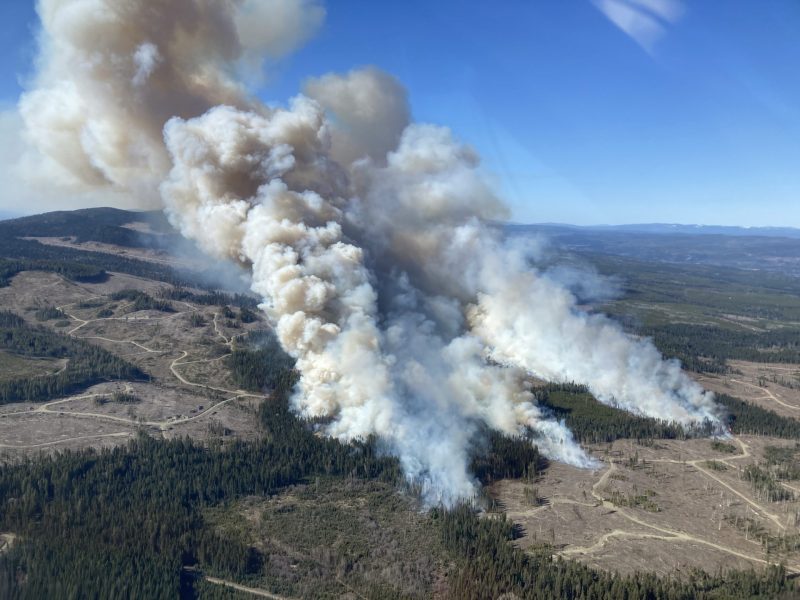This past weekend saw seven wildfires reported in the Cariboo, including the 1,600-hectare Burgess Creek Wildfire, which continues to burn out of control between Quesnel and Williams Lake.
An evacuation alert was announced April 23 for the area east of the fire, but no ranches have been impacted to date.
However, rancher and Quesnel Cattlemen’s Association president Sage Gordon says conditions favour hot and fast-moving fires.
“We get lots of [rain] threats, which we would like to see, but none of it has really come to any substantial amount at this point,” he says. “For this time of year, we are super dry.”
This winter was milder and drier than last year, which saw BC’s most destructive wildfire season in recorded history with 2,245 wildfires burning more than 2.84 million hectares.
The long-range forecast calls for warm temperatures and dry conditions through mid-July before transitioning to cool and dry through late summer and fall, Gordon says.
He says ranchers will need to plan accordingly to ensure adequate hay and water, and options in the event a wildfire impacts their operations.
“I’m keeping an eye on things and trying to figure out, you know, where I can get hay, how much hay I’m going to get, whether the fields I use for hay I’m going to use for pasture,” Gordon says. “On the wildfire end of it, I’m just trying to make sure that we can get things cleaned up or moved back where necessary from houses or outbuildings.”
As a fire warden for the BC Wildfire Service, Gordon and others are filling water tanks and trailers as a precautionary measure.
The seven fires reported April 20 in the Cariboo – one of the driest regions in the country, according to the Canadian Drought Monitor – signal the level of danger.
“We have seen the odd fire in April, human-caused generally,” Gordon says. “But not like it has been this year so far. … I mean, that’s a pile of fires that have been human-caused compared to last year, especially when you have Category 2 and 3 fire bans on already.”
It all points to the need for ranchers to take steps to protect their operations.
“Prepare as much as you can,” Gordon says. “At this point, it’s looking like it’s going to be a dry season. We’re hoping for rain.”


 Federal budget “falls short”
Federal budget “falls short”